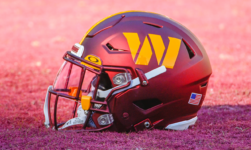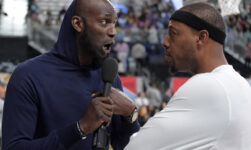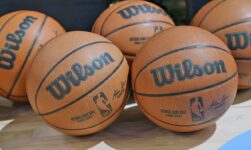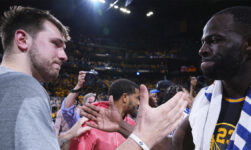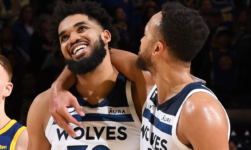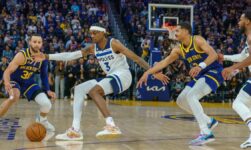The draft is all done, free agency is mostly finished as well, and that means the 2020-21 NBA season is just around the corner. Teams will open up training camp on Dec. 1, and preseason games are set to run from Dec. 11-19. From there, it’s just a few short days until opening night on Dec. 22.
Unlike this summer, when the NBA completed the 2019-20 regular season and playoffs inside a secure bubble at Disney World, this season’s games will all take place in teams’ home markets. That means travel, which means exposure to a whole lot of people, which unfortunately means COVID-19 infections.
In fact, the league admits as much in their health and safety protocol which was obtained by The Athletic. But lacking a widespread outbreak, the league does not plan to make any major changes to the season schedule:
“It is likely that some staff, players, and other participants in the 2020-21 season nonetheless will test positive or contract COVID-19, particularly as the virus remains prevalent in particular team markets and surrounding communities. The occurrence of independent cases (i.e., cases not spread among players or team staff) or a small or otherwise expected number of COVID-19 cases will not require a decision to suspend or cancel the 2020-21 season.”
So working with the league’s unfortunately correct assumption that players are going to test positive for COVID-19 over the course of the season, what has to happen for them to be cleared to play again? Here are the major bullet points for a player returning to play after a positive test:
At least 12 days have passed since the latter of either player’s first positive test, or the conclusion of their symptomsThe player is asymptomatic and there are no concerns about reinfectionA team doctor has cleared the player to returnThe team doctor has reviewed the case with a league doctor, who offers no further objections
Just like in the bubble, players will be tested daily, but the requirements after a positive test are more stringent, and for good reason — without a closed environment, the league has to take more precautions. In the bubble, players had to quarantine for 48 hours after they arrived, or until they returned two negative tests at least 24 hours apart. From there, they were good as long as they kept testing negative. Even players who left for unauthorized reasons only had to quarantine for 10 days upon return.
Another challenge of not being inside a bubble is that in the process of traveling and interacting with family, friends and various workers, players could be exposed to someone who has COVID-19. In that case, there is another protocol for how that player can return to play:
Any player exposed to someone with COVID-19 may not enter a team facility, participate in any workouts or interact with other players or staff until a team doctor performs a medical and risk exposure reviewThe team doctor clears the player to return
The memo obtained by The Athletic also makes notes about travel, including the fact that parties are limited to 45 people, and players and staff are not supposed to use any public hotel facilities unless the team has reserved them only for their use. But perhaps the other most interesting note is that the league is also bringing back the hotline.
If you’ll recall, the league established a hotline inside the bubble for anyone to report offenses that broke the health and safety guidelines. Perhaps most notably, Dwight Howard was reported for not wearing his mask, but he wasn’t the only player reprimanded for failing to follow the rules. Now, again, there’s a way for these infringements to be called out:
All players and team staff are strongly encouraged to report any potential or actual violation of these Protocols by any individual to the league office or may report anonymously through an established NBA hotline. Players may also report any potential or actual violation to their team and/or to the NBPA.
As the season draws closer, we should learn more about the league’s plan for combatting COVID-19, and unfortunately will likely soon see what it looks like in practice. For now, it seems like they have some stringent guidelines in place, but even they admit that short of not playing, it will be difficult to completely prevent any infections given the state of the pandemic in this country.
Hopefully things will go as smoothly as possible, but it’s hard to imagine the NBA season will be much different than what we’ve seen in the MLB, NFL and MLS over the past few months, where there’s been dozens of players testing positive, and numerous games postponed.

